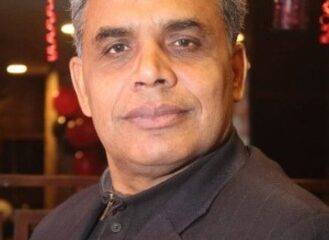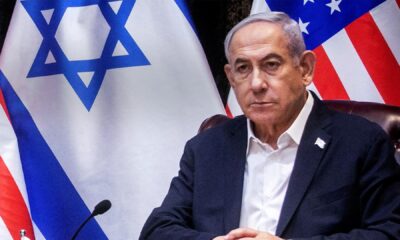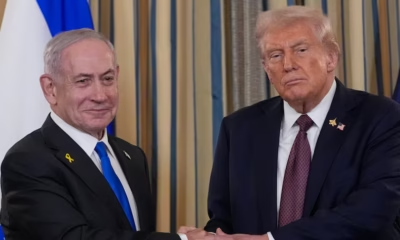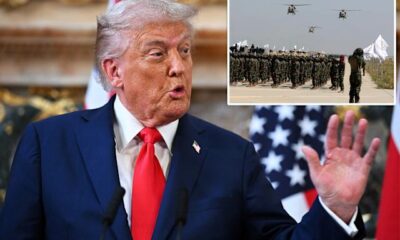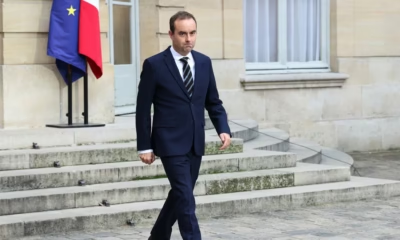Pakistan News
Relatives not allowed to meet, deliver food to Mahrang Baloch in Quetta District Jail: family alleges

Relatives are not being allowed to meet and deliver food to Dr Mahrang Baloch while she is in custody in Quetta District Jail, the Baloch Yakjehti Committee (BYC) leader’s sister alleged on Sunday.
The BYC’s chief organiser and 16 other activists were arrested from their protest camp at Quetta’s Sariab Road, while a police crackdown on its sit-in against alleged enforced disappearances continues.
Asma Baloch told Dawn.com that more than 24 hours have passed, but Mahrang has not been produced in court nor is she allowed access to legal counsel.
“The authorities at Quetta District Jail did not allow us to meet my sister and we were not allowed to deliver food and other essential items to her,” Asma alleged, adding that these items were returned by jail authorities.
“This morning we waited outside the jail for more than 2 hours and kept requesting to meet her, but we were denied access and not allowed to deliver clothes and food.”
The BYC has issued protest calls on social media platform X in both Karachi and Quetta for March 24 (tomorrow), with the protest at the Karachi Press Club organised in collaboration with civil society members.
The demonstrators will protest the “illegal detention” of both Mahrang and Bebarg Baloch in the two cities, calling the arrests “a direct attack on fundamental human rights, justice, and freedom of expression”.
According to the X posts, the protest at the Karachi Press Club is scheduled for 4pm, while the protest in Quetta is scheduled for noon.
Meanwhile, the situation in Quetta returned to normal on Sunday — a day after a partial shutdown — while a shutter-down strike continued for a second day in some cities across Balochistan in response to a call by the Baloch Yakjehti Committee’s (BYC), which demanded the release of its leadership.
Mahrang had been leading the protest against the arrests of BYC activist Bebarg Baloch, his brother, and Bolan Medical College Vice Principal Dr Ilyas Baloch and his family members. Dr Ilyas and his relatives have been released. The participants were also protesting against the alleged burial of 13 bodies without identification.
The strike call had been issued after the BYC claimed on Friday that three of its protesters were killed by blank shots allegedly fired by the police. However, Quetta Commissioner Hamza Shafqaat had denied the claim, saying the deaths resulted from alleged firing by “armed elements accompanying BYC leadership”.
According to a Dawn.com correspondent, the situation in Quetta returned to normal today after the provincial capital observed a partial shutdown and wheel-jam strike yesterday.
While the main businesses and markets remained open on Saturday, Sariab Road, Brewery Road as well as some other areas on the city’s outskirts had remained closed.
Shops in Gwadar and Surab, where a strike was reported yesterday, also reopened today, Dawn.com correspondents said.
On its side, the BYC issued a call for another protest at the Qambrani road in Quetta at 4pm today.
It said the protest was against the state’s actions in Balochistan as well as the arrest of Mahrang and other leaders, and urged the province’s people to come out of their homes to support the movement.
In a statement on Mahrang’s X account, her sister urged the public to raise their voice for the “safe release of Mahrang Baloch, Beboo Baloch, Bebagar Baloch, and their friends”.
“As long as she (Mahrang) remains unlawfully detained by the state of Pakistan, I will be managing this account and providing updates on her situation,” the post purportedly made by her sister said.

Amnesty International called for Mahrang’s release in a post on X, stating that she had been unlawfully detained for over 38 hours.
“More than 38 hours since Mahrang Baloch’s unlawful detention, she is still being denied access to her lawyers and family,” Amnesty wrote. “There are also worrying reports of continued arbitrary arrests and detentions across Balochistan province.
“Pakistani authorities must immediately release Mahrang Baloch and all others being detained for exercising their right to peaceful protest, and refrain from implicating Baloch activists in frivolous cases to unlawfully prolong their detention,” the NGO said.

According to Hub Deputy Superintendent of Police (DSP) Imam Bakhsh Baloch, six people, including Imran Baloch, the former chairman of the Baloch Students Organisation (BSO), have been arrested.
The DSP told Dawn.com that Imran Baloch was arrested in connection with two previously registered cases, while investigations are underway into the other arrested suspects.
“Imran was absconding in both cases,” the DSP said.
Some Balochistan cities remain shut
However, shutter-down strikes continued in Kech’s Turbat as well as in Panjgur, Noshki, Kalat and Chagai districts, Dawn.com correspondents reported.
Protests by BYC supporters were also held in Kech and at Bhawani near Hub on the Karachi-Quetta Highway, where traffic had been suspended yesterday due to road blockades.
The BYC shared purported visuals of closed shops in Kech, Noshki, Kharan, and Kalat. Videos shared by the committee also showed dozens, mostly women, at a sit-in in Kech and a rally purportedly held in Chagai.

In another post, the BYC claimed that one protester was arrested earlier today at Hub as “police and security personnel launched a crackdown on the protest camp, where families of missing persons and BYC activists were peacefully gathered”.
“They dismantled the tent, fired tear gas, and opened fire, sabotaging the protest,” it added.
On Saturday, strikes had been reported in Mastung, Khuzdar, Hub, Bela, Surab, Gwadar, Dera Murad Jamali and some other areas as well.
Meanwhile, the roads in Khuzdar, Surab, Kalat and Mastung were opened last night after talks were held with the local administrations. Traffic had been suspended yesterday between Quetta and Karachi, as well as Quetta and Taftan due to the blocking of highways.
By late Saturday night, the supporters of BYC were present in the Saroyan area and ‘clashes’ between the protesters and the BYC continued. Police were using tear gas to disperse the mob.
Reports also suggested that the post office of Balochistan University and many shops on Sariab Road had been torched while a heavy contingent was present in the area to disperse the protesters.
However, the protest quickly turned violent as BYC protesters and their armed accomplices allegedly resorted to stone-pelting, indiscriminate firing, and attacks on law enforcement personnel. During the unrest, three individuals lost their lives due to alleged firing by “armed elements accompanying BYC leadership”.
“Civil authorities and police emphasised that the deceased individuals’ bodies needed examination to ascertain the actual circumstances of their deaths. Despite knowing that all three — one of whom was an Afghan national — were killed by their own associates, the BYC leadership refused to hand over the bodies.
Meanwhile, a first information report (FIR) was filed with Civil Lines police station in Quetta on March 19 against Mahrang and 12 other named suspects over the attack on Civil Hospital.
According to the FIR, seen by Dawn.com, Baloch has been charged under Sections 124A (sedition), 147 (punishment for rioting), 149 (every member of unlawful assembly guilty of offence committed in prosecution of common object), 153A (promoting enmity between different groups), 186 (obstructing public servant in discharge of public functions), 337AD (fighting and vandalism), 342 (punishment for wrongful confinement), 353 (assault or criminal force to deter public servant from discharge of his duty), 356 (assault or criminal force in attempt to commit theft of property carried by a person) and 505 (statements conducing to public mischief) of the Pakistan Penal Code.
These sections were read with Section 11V (directing terrorist activities) of the Anti-Terrorism Act, 1997.
According to the FIR, up to 150 people stormed the morgue at Civil Hospital and took the bodies of the terrorists killed during the Jaffar Express train hijacking.
HDT chief Hidayatur Rehman ‘ready to mediate’
Separately, Haq Do Tehreek chief Maulana Hidayatur Rehman said he was ready to mediate between the government and the BYC to reduce the tensions.
Rehman, also a Balochistan MPA from Jamaat-i-Islami, said in a statement issued by the HDT that the “people of Balochistan cannot afford more bodies”.
Expressing concern over the recent incidents in Quetta related to the BYC, Rehman said “peace cannot be established with violence and coercion”.
Rehman said he was ready to mediate, with the agreement of the parties, so that the “release of the prisoners and public relief were possible”. He stressed that any further conflict would not be in the public interest as the people were the most affected by the current situation.
Taken From DAWN News
Pakistan News
Pakistan: A Pendulum between Democracy and Dictatorship
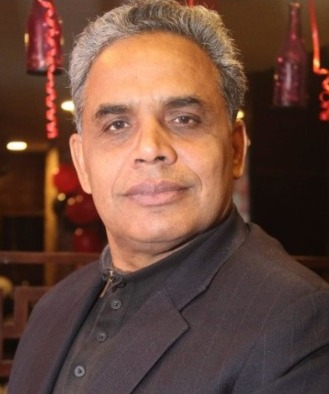
By Akhtar Hussain Sandhu
Pakistan has been passing through a turbulent phase by means of internal and external challenges. All the administrative authorities are trying to bridle this nuisance and menace. The crucial national and international problems, including terrorism, failure of the political parties, the impotent role of bureaucracy, and the external threats to the state, have popularized the military leadership. Field Marshal Syed Asim Munir leads the only organized institution of army in Pakistan that performs its duties tremendously and vigilantly.

The maleficent and precarious plans of India, the Tehrik-i-Taliban Pakistan, and Tehrik-i-Labbaik Pakistan, the violent role of political parties have multiplied the challenges for Pakistan. It is even Pakistan Tehrik-i-Insaf Pakistan that supports extremist and violent activities, which ultimately damages the image of the country. Although the civil government is credited in restoring the performance of foreign affairs, but the real credit goes to the Chief of Army Staff Gen. Gen. Asim Munir, who paved the way for cordial relations with the Arab and powerful countries, including USA, China, and Russia. The Afghan Taliban government is already supporting TTP, which attacked the Pakistan Army’s posts and martyred 23 soldiers. The TTP had already martyred many civilians, law enforcement officials, and military officers and soldiers in the recent past.
Moreover, the Afghan foreign minister Amir Muttaqi’s visit to India set in a new collaboration against Pakistan. Under the influence of this Afghan-India understanding, the long Pak-Afghan border was hit by the TTP militants and the Afghan army, but the Pakistan army bulldozed their sinister and nefarious aims and defeated the Afghan army within two hours testifying the myth that Afghanistan never defeated any attacking nation without external support. The Pakistan Army has not interfered with the election process of the Chief Minister KPK, which indicates that the army would remain aloof from the politics. Gen. Asim Munir proved his professional ethics, fairplay, and impartiality to uplift the image of Pakistan in the world. Pakistan’s armed forces, with their great professionalism, defended the country and retaliated with full thrust when Iran, India, and Afghanistan attacked Pakistan. An honest and visionary leadership is the asset of a nation; therefore, the majority of Pakistani people are proud of their institutions especially the army and leadership.
On the other hand, such circumstances pave the way for a military dictatorship because the failure of the political parties results in the decay of the democratic system. Pakistan at the moment experiences the best model of collaboration between the government and army, along with the best model of foreign relations but at the same time, Pakistan is undergoing the worst phase because of the violent politics of PTI, TTP, TLP, along with grave danger on the eastern and western borders. India and Afghanistan are inflicting a collaborative aggression on the civilians and armed forces of Pakistan.
Despite this critical situation, moral and administrative corruption by almost all government institutions, including police, revenue, customs, smuggling, nepotism, drug sale, media abuse, atrocities by the rich, encroachments, leasing government lands, commission on contracts, weak performance in the education sector, impotent role in expelling the Afghan refugees, ill-treatment at the airports by the dealing staff, slave mindset of the bureaucracy, and sifarash seem toeing the traditionally dirty politics, corrupt mindset and rotten governance by the government institutions which will definitely increase a favorable sentiments for the army chief and detestation for the political parties.
On all fronts, the people of Pakistan witness an effective role of Gen. Asim Munir that will result in the extension or direct rule of the Field Marshal. The performance of the political parties is declining their prestige in the eyes of the people as the PTI does not get rid of the violent and anti-Pakistan politics; PMLN, being in the government, is losing the sympathy base among the masses, and PPP has already no rising potential in the national politics. They have focused on the role of pressure groups confined to the provincial forces.
The PPP confined itself to Sindh, PMLN in Punjab, PTI in KPK, while no political genuine process in Balochistan, Azad Kashmir, and Gilgit-Baltistan. Although the Pakistani establishment is away from the politics of Pakistan but it cannot remain silent on the assumptions perceived by the establishment. The Supreme Court of Pakistan is divided between the judges having a ‘populist approach’ and a ‘constitutionalist mindset.’ Most of the judges are inducted based on their political affiliation, and the political parties expect them to return the same love, which has led the Pakistani judicial system to the worst performance list issued at international level.
The Police and other departments are used by the ruling party to embarrass the opposition. Even the political parties have internal groups that are taken and treated as rival political forces. The political parties use their offshoots in the educational institutions as their armed supporters. The lawyers have political and financial predilections; therefore, the main leadership producing institution has become a political stooge, blackmailer, qabza mafia, and drumbeater of the politicians and pseudo-religious leaders. Sometimes, some people assume that Pakistan is perhaps not suitable for democracy. I assume that western societies, where democracy is successful, develop different social and cultural dynamics. Pakistan’s socio-cultural reality is different from the West; therefore, the imported Western system cannot work effectively in Pakistan. It is the moral obligation of Pakistan’s social scientists to develop and adapt a conducive system fit to our socio-political reality. In this perspective, local cultures and mindset is to be considered to make democracy successful in our country. An honest and dedicated leadership is need of the time, our politicians are required to be trustworthy through their fair political decision-making. Amidst the prevailing circumstances, one cannot find any honest, uncompromised, and strong leadership in the political parties of Pakistan. In the state of crisis, people look forward toward the military leadership in Pakistan. There has been a game of hide and seek between democracy and dictatorship in Pakistan. During the tenure of Gen. Qamar Javed Bajwa, the political crisis emerged based on the doubt of the military intervention for ten years, but external and internal threats and economic crisis did not allow the military to occupy Islamabad. The coming years seem to be crucial, and the constant political crises may give chance to military leadership to lead the country directly.
Pakistan News
The Forgotten 804

Paris (Imran Y. CHOUDHRY) :- Former Press Secretary to the President, Former Press Minister to the Embassy of Pakistan to France, Former MD, SRBC Mr. Qamar Bashir analysis: In the long arc of global politics, some stories are not merely about one man or one nation, but about the deliberate removal of obstacles that could derail larger designs. The imprisonment of Imran Khan, referred to by many as the forgotten “Prisoner 804,” is not only a chapter in Pakistan’s turbulent democracy but part of a larger geopolitical strategy in which the United States, Israel, and their allies sought to ensure that no disruptive force could interfere with their unfolding project in the Middle East. His incarceration is not just a punishment for defiance at home; it is a calculated silencing of a leader whose stubborn refusal to obey foreign dictates could have unsettled the plan to reshape Palestine, neutralize resistance, and entrench the vision of a greater Israel.
The United States has long been accused of thinking not just about present crises but of planning far ahead, identifying potential threats to its policies and eliminating them before they can materialize. From Latin America in the 20th century to the Middle East after 9/11, the record is replete with instances of intervention, destabilization, and regime change to pave the way for American interests. Pakistan, with its nuclear arsenal and ideological centrality to the Muslim world, has always been watched with particular suspicion whenever a leader emerged who spoke of independence, dignity, or solidarity with oppressed Muslims abroad. Imran Khan, by the time he matured into a national statesman, fit this profile perfectly: a man too self-confident to obey and too popular to be ignored.
It was during one of his interviews that the world caught a glimpse of his defiance. Asked whether Pakistan would allow American bases on its soil, his answer was sharp, unequivocal, and without diplomatic varnish: “Absolutely not.” For Washington, such a response was more than a sound bite. It was a warning that when the time came to launch broader operations in the region, including in Gaza, Khan would be an unpredictable and dangerous obstacle. The United States and Israel were moving towards their long-prepared campaign to dismantle Hamas and, more brutally, to ethnically cleanse Palestinians from Gaza and the West Bank. In that plan, Pakistan mattered. Its nuclear status, its army’s conventional strength, its historic role in the Muslim world, and the ability of its leader to mobilize opinion could all complicate the campaign. And so, before the bombs fell on Gaza, before the massacres of civilians filled the headlines, Pakistan’s loudest and most defiant voice was removed from the stage and locked in prison.
Khan’s removal was achieved through the time-tested formula of intrigue, betrayal, and manipulation. Once firmly established in power, his popularity was not eroded by scandal or economic collapse but by conspiracies spun from within, aided by external encouragement. He was stabbed in the back by allies, deceived by those he trusted, and undermined by the very establishment that should have protected him. His removal through a no-confidence vote in 2022 was presented as constitutional theater, but the timing and the subsequent unfolding of events revealed a deeper orchestration. He was expected, even by detractors, to return to power after elections. Yet the military establishment, in close alignment with U.S. preferences, ensured that even that possibility was closed off. For Washington, it was not enough to remove him once; they had to make sure he could never again return to disrupt the silence that was required when Gaza burned.
What followed was a demonstration of how external powers reward obedience and punish defiance. The civilian government led by Shehbaz Sharif and the military leadership under General Asim Munir quickly aligned themselves with Washington’s designs. Donald Trump himself revealed that both Sharif and Munir had been taken into confidence during the preparations for the U.S. strike on Iran and Israel’s onslaught on Gaza. The symbolism was unmistakable. For the first time in living memory, the president of the United States bypassed Pakistan’s civilian prime minister and held direct consultations with a serving general, elevating a subordinate servant of the state to the rank of geopolitical partner. The bypassing of the civilian chain of command spoke volumes: it was a reminder that power in Pakistan could be stabilized or destabilized at Washington’s will, depending on whether it complied or resisted.
The results were immediate and telling. When Israel unleashed its fury on Gaza and the West Bank, demolishing neighborhoods, bombing hospitals, and slaughtering women, children, and journalists, Pakistan’s response was muted. The country that had historically been among the loudest defenders of the Palestinian cause was suddenly silent. The same Pakistan whose leaders once thundered in international forums against Israeli occupation now mumbled routine statements while ensuring that no real action was taken. The silence was not accidental; it was the price paid for staying in power. Washington, in turn, ensured that Pakistan’s economy did not collapse entirely. IMF loans were eased, debt repayments were tolerated, and inflation was kept under some measure of control. The army and police were allowed to unleash brute force against protesters without fear of sanctions or reprimand. In exchange for obedience, the state was stabilized enough to carry out Washington’s commands.
Meanwhile, Prisoner 804 remained behind bars. Courts disregarded arguments by senior advocates and witnesses, not because the evidence was weak but because justice was never the point. The plan was clear: Imran Khan was to remain imprisoned until the Israeli project in Palestine was complete. His release, whether legally warranted or not, would have risked giving voice to the Muslim world at a moment when silence was most precious to Israel and its backers. His love for Islam, his admiration for the Prophet, his ability to galvanize millions of ordinary Pakistanis, and his influence across the Muslim world posed the very real danger of rallying states to oppose the genocide in Gaza. He could have called for collective action, perhaps even kinetic action, uniting Pakistan with Iran or other Muslim nations to confront Israeli aggression. That risk could not be taken, and so he was kept locked away, forgotten by the courts, ignored by the establishment, and silenced by force.
In this tragic arrangement, Pakistan has been reduced to a pawn. Its elected leadership lacks legitimacy, having been installed “by hook or by crook,” without genuine majority support. Its military leadership has overstayed retirements and rules with impunity, rewarded for obedience and secured by foreign approval. Together, they preside over a silenced population, cowed into submission by fear of the army and police, pacified by small economic concessions, and deprived of the leader who once embodied their aspirations for independence. The entire spectacle demonstrates how Washington’s leverage works: stabilize those who obey, destabilize those who defy.
The case of the forgotten 804, therefore, is not merely about one man’s imprisonment. It is about the systematic silencing of resistance in the Muslim world to clear the path for Israel’s project of ethnic cleansing and annexation. It is about the quiet submission of a nuclear-armed nation to foreign diktats, reduced from potential leader of an Islamic bloc to a bystander while atrocities unfold before the world’s eyes. It is about the reminder that in the theater of geopolitics, legality, democracy, and even human life itself are subordinated to the interests of the powerful.
Yet history has a way of proving that silence never lasts forever. Imran Khan’s imprisonment may achieve its short-term purpose, but the questions it raises will not vanish. How long can Pakistan endure the contradiction between its people’s convictions and its rulers’ obedience? How long can the Muslim world remain fragmented when the suffering of Palestinians continues to demand a collective response? And how long can any leader who bends too easily to foreign will sustain their own legitimacy at home? The forgotten 804 may one day emerge, and if he does, it will not only be as a man but as the embodiment of a suppressed nation’s voice. Until then, his silence echoes in every demolished home in Gaza, every unmarked grave in the West Bank, and every tear of those who still look to Pakistan for leadership and find only compliance.
Pakistan News
Pakistan High Commission, London Convenes Experts on Leveraging AI in Healthcare in Pakistan

Pilot projects for Electronic Medical Record (EMR) systems in major hospitals, starting from Islamabad, to be implemented with public-private partnership in AI and Health
The High Commission of Pakistan in London, hosted a high-level workshop on “Leveraging AI in Healthcare in Pakistan”, bringing together policy makers, AI experts, medical professionals, and academics from the UK and Pakistan.
The session was opened by the High Commissioner, who underscored the transformative potential of Artificial Intelligence to improve healthcare governance, diagnostics, electronic medical records, and medical education in Pakistan. In his pre-recorded keynote address the Federal Minister for National Health Services, Regulations & Coordination, Dr. Syed Mustafa Kamal, emphasised the need to embrace modern technologies and AI to improve public healthcare in Pakistan. In his remarks, Dr. Zubir Ahmed MP, Parliamentary Under-Secretary of State at the UK Department of Health and Social Care, shared UK’s experience in integrating innovation and AI to enhance health equity and access.
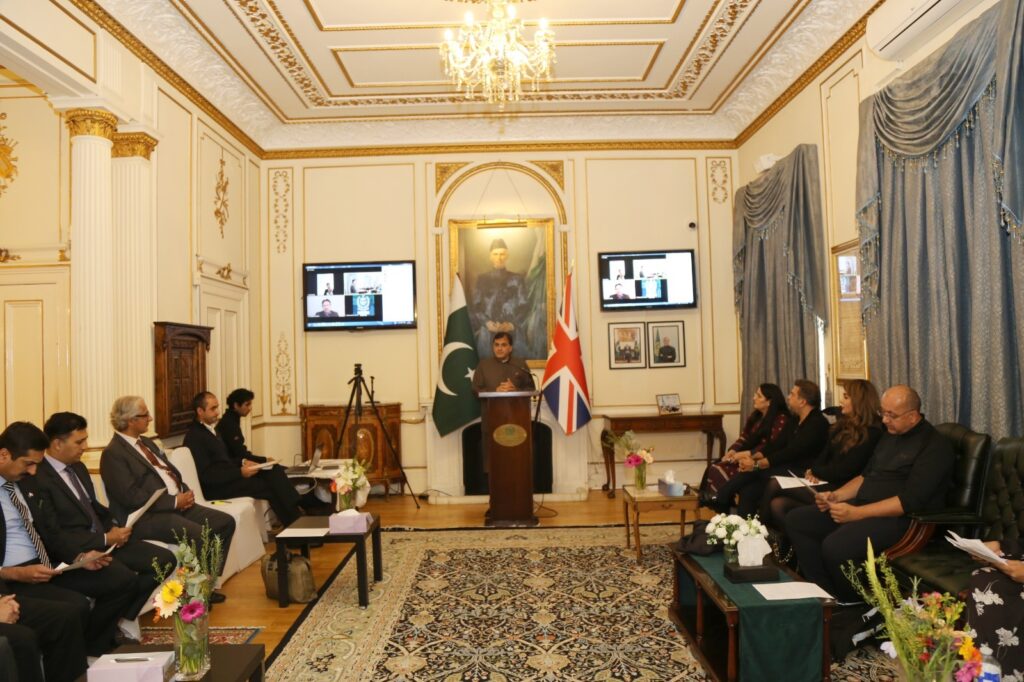
A distinguished line-up of speakers spoke on a range of critical themes. Mr. Abu Bakar, CEO of the Pakistan Software Export Board (PSEB), shared his vision for digital transformation and enabling health technology innovation in Pakistan. Ms. Ayesha Hussain, Data Governance Lead at University of Leeds, discussed responsible AI and data quality frameworks to ensure affordable, accessible, and high-quality healthcare delivery. Mr. Omer Butt, Co-founder of Vita Healthcare Solutions, built a case for AI use-cases that reduce waiting times and treatment delays, while addressing inequities in care delivery. Dr. Mahdi Murtaza – a young doctor – presented a pathway to leverage AI for primary care transformation in Pakistan and development of AI curriculum for medical professionals.
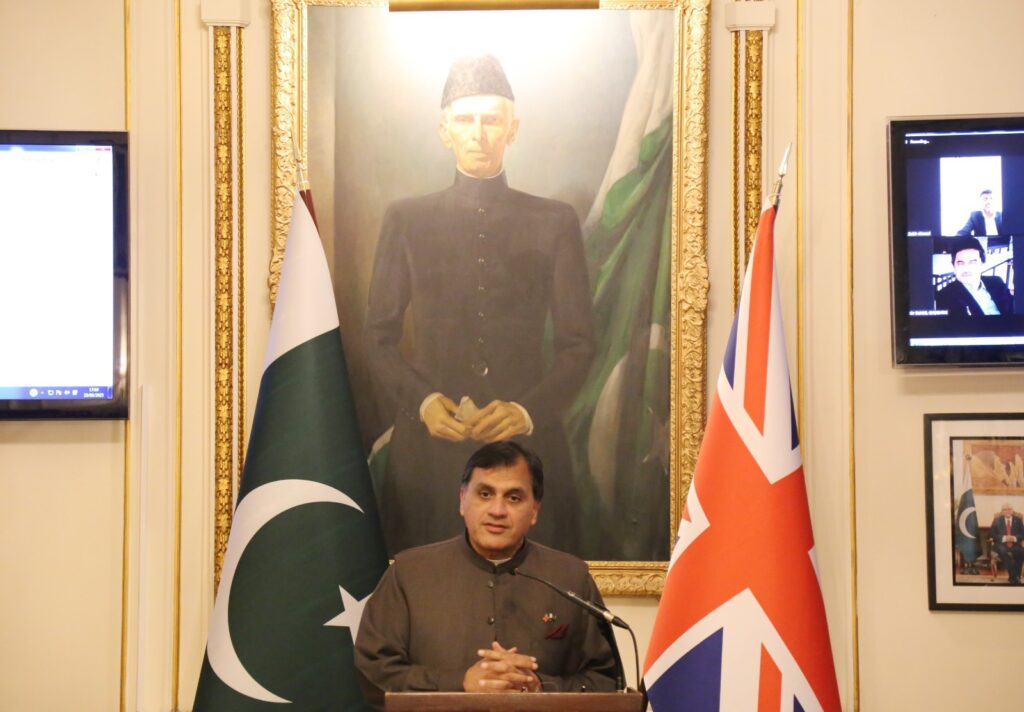
Dr. Suhail Chughtai, Clinical Director for Orthopaedics & Trauma, London, and AI Division Chair at UK Digital Health & Care, spoke about developing an AI-enabled Electronic Medical Records (EMR) system for Pakistan. Professor Jawwad Arshad Darr, Vice Dean of Enterprise at UCL’s MAPS Faculty and Co-founder of UPSIGN, presented strategies for training and developing academic capacity for AI research in Pakistan. Dr. Shahid Latif, Chair of the British Pakistani Psychiatrists Association, focused on AI in mental health care, while Ms. Zehra Shah, CEO of OPEN London, spoke about responsible AI in healthcare and its ethical implications. The discussion concluded with Mr. Rehman Qamar, Chief Project Officer at NADRA, who highlighted how NADRA’s citizen database could underpin secure, scalable digital health systems and EMR integration in Pakistan.
Participants agreed on several key outcomes, including the need for a national AI-enabled health data strategy, public-private partnership in AI and Health, the piloting of EMR systems in major hospitals, and the development of AI training curricula for medical professionals. They noted that building a Responsible AI Framework in Healthcare, which embeds Responsible AI principles into AI Applications and processes, was a must. They also agreed to re-convene to discuss other aspects of AI in healthcare in coming days.
The High Commissioner reaffirmed its commitment to present these recommendations to the stakeholders in Islamabad, ensuring that Pakistan could harness AI to deliver better healthcare for every citizen.
London, 24th September 2025
-

 Europe News8 months ago
Europe News8 months agoChaos and unproven theories surround Tates’ release from Romania
-

 American News8 months ago
American News8 months agoTrump Expels Zelensky from the White House
-

 American News8 months ago
American News8 months agoTrump expands exemptions from Canada and Mexico tariffs
-

 American News8 months ago
American News8 months agoZelensky bruised but upbeat after diplomatic whirlwind
-

 Art & Culture8 months ago
Art & Culture8 months agoThe Indian film showing the bride’s ‘humiliation’ in arranged marriage
-

 Art & Culture8 months ago
Art & Culture8 months agoInternational Agriculture Exhibition held in Paris
-

 Politics8 months ago
Politics8 months agoUS cuts send South Africa’s HIV treatment ‘off a cliff’
-

 Politics8 months ago
Politics8 months agoWorst violence in Syria since Assad fall as dozens killed in clashes


